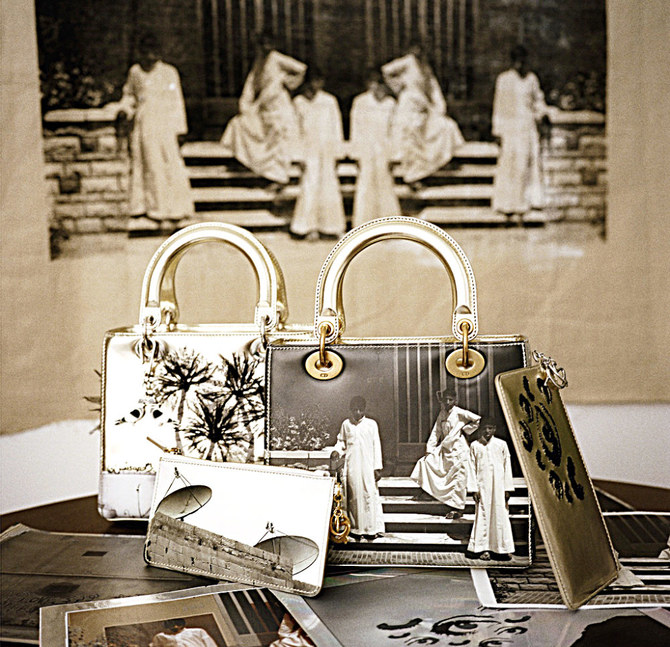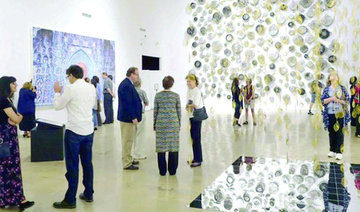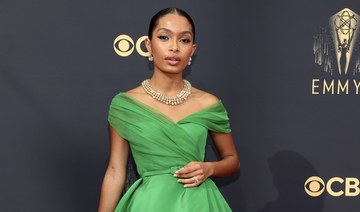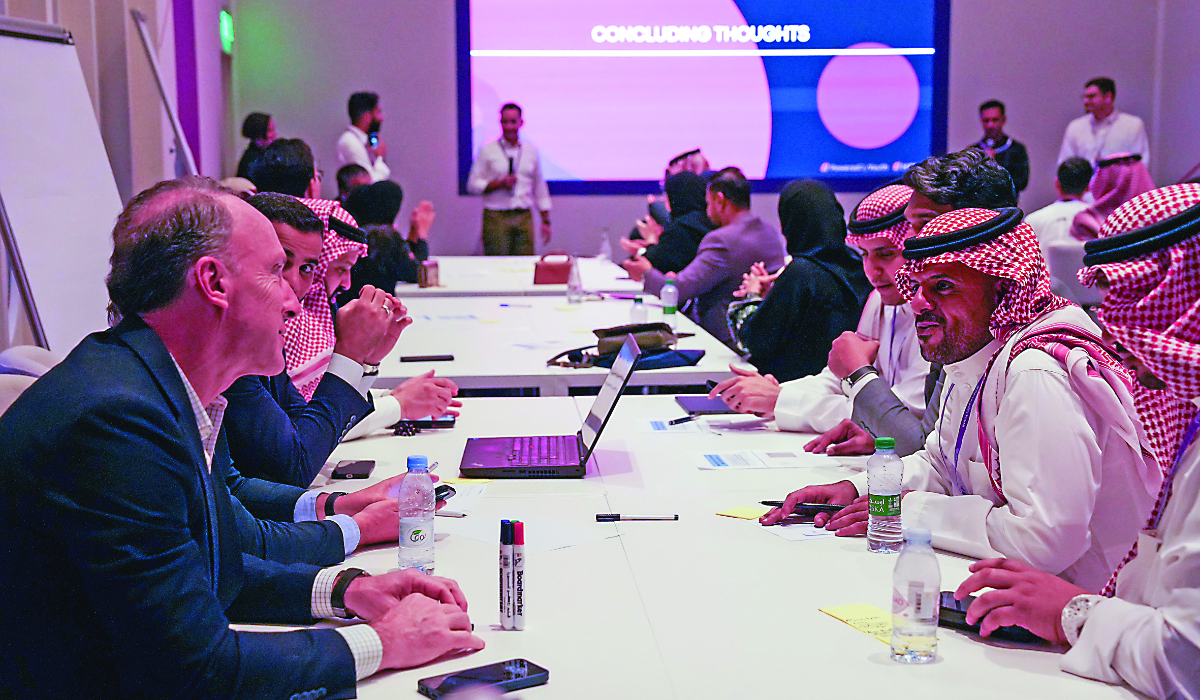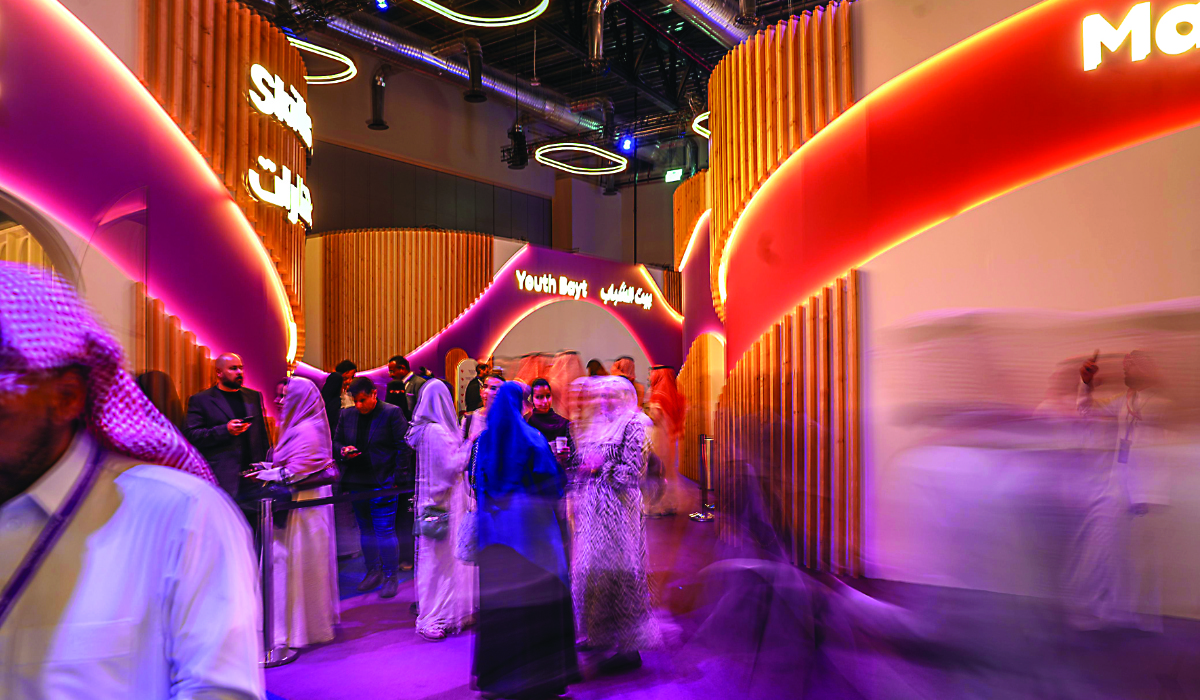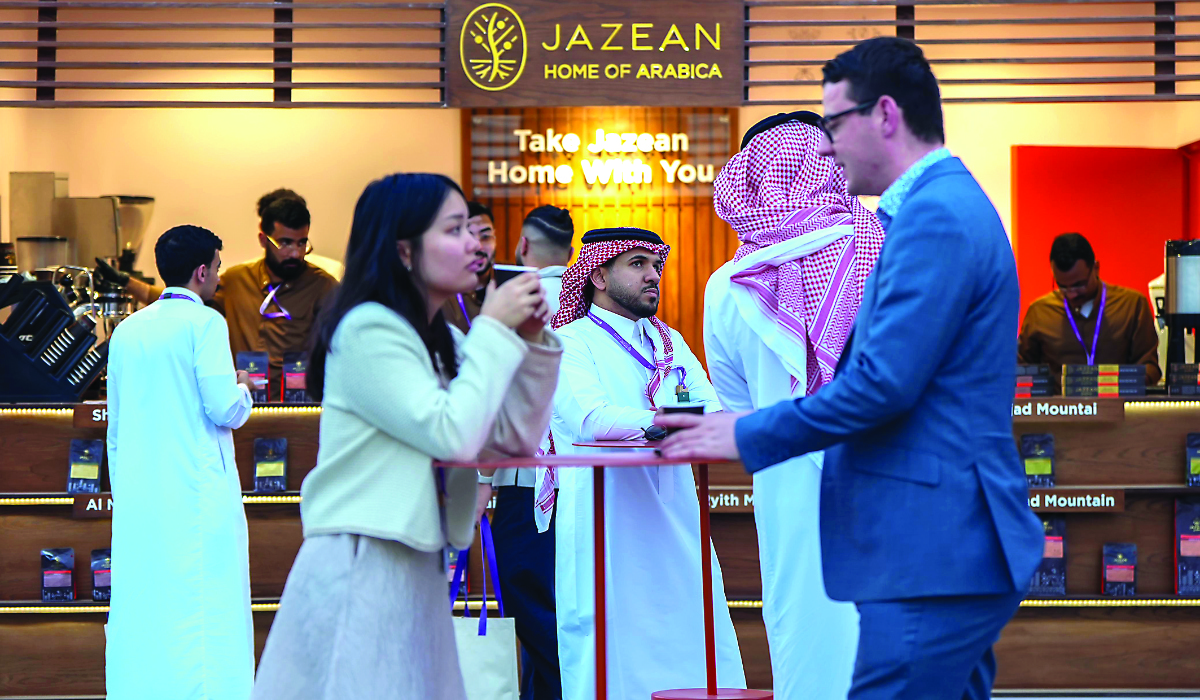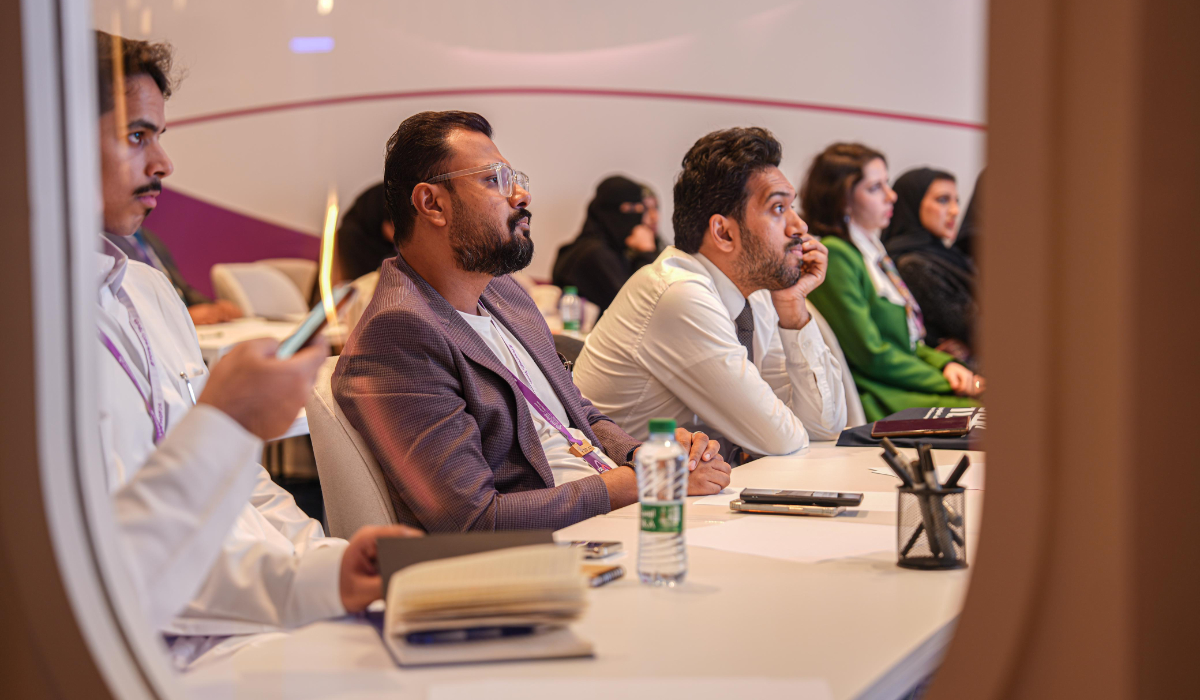JEDDAH: Saudi contemporary artist Manal Al-Dowayan was among the first Saudi, GCC and Arab female designers to feature and represent their heritage in a handbag collection for one of the famous French brands in fashion history, Dior.
“Dior was cool enough to allow me to make a bag. You as an artist are supposed to take on the bag and change it and add to it. But I told them, I just thought I’d add something that is completely different, and they agreed to it. Now, we have made it together. It’s supposed to be a bag slash sculpture,” said Al-Dowayan.
Al-Dowayan Lady Dior collection is made of materials and techniques using leather stitching, 3D printing, calfskin leather, embroidered black feathers, and black and white photographs. With the Dior design team, Al-Dowayan produced three pieces — “The Boys,” “Landscape of the Mind,” and a mini minaudiere-style bag, “Desert Rose — highlighting her Saudi heritage and nostalgic aspects of her personal memories.
In an exclusive interview with Arab News, Al-Dowayan said that the first bag, “The Boys,” was inspired by an artwork collection she made in 2016.
“I had developed this one through reusing Kodak film slides that my father had taken in 1962 in Saudi Arabia, more specifically in Qassim,” she said.
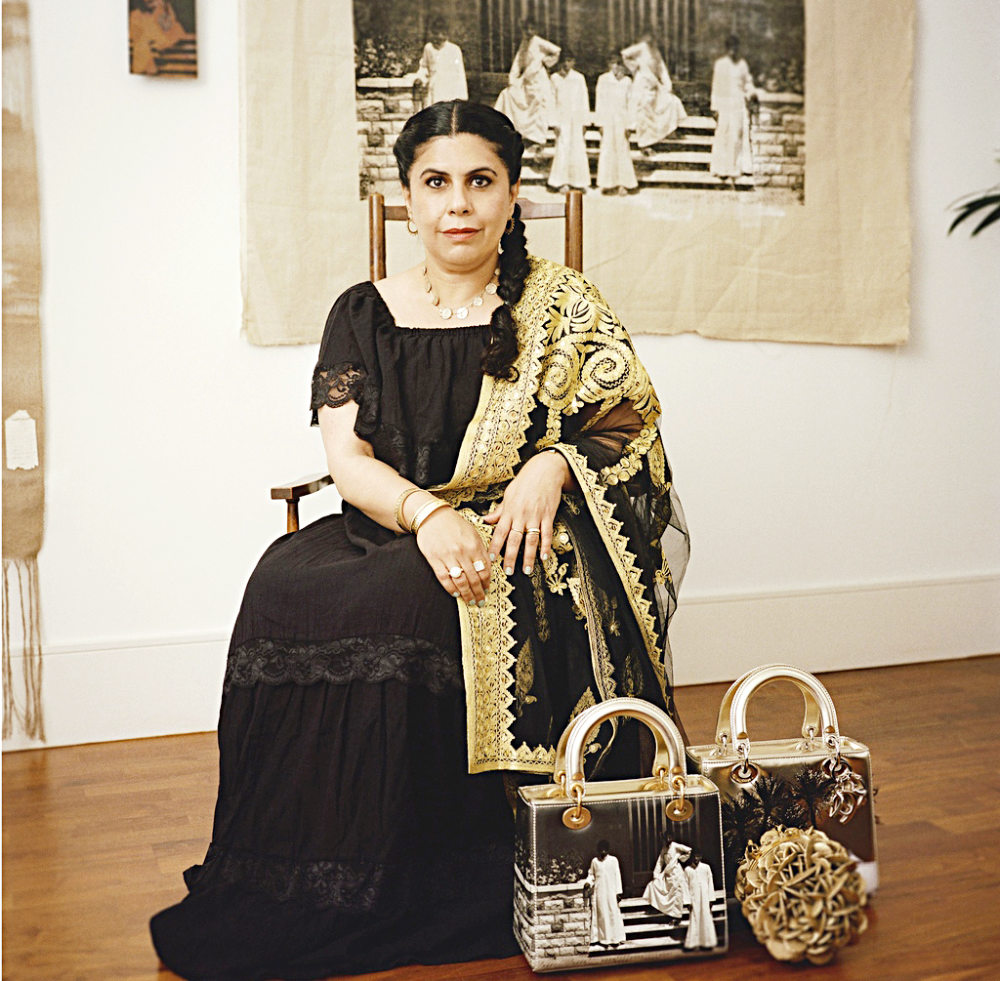
Manal AlDowayan, the first Arab female to ably her art and design to the worldwide known french brand Dior. (Supplied)
“I was thinking about the identity of this bag, and what I was trying to say through it, which was basically the huge transformative moment we are going through in Saudi Arabia. As people in the culture, I think we are reconnecting to who we are, what and how we dress and how we look and how we speak in a very, very different unique way that is much more centralized to who we are, rather than looking outwards and trying to imitate outside,” she said.
The second bag, “Landscapes of the Mind,” was inspired by a collection that she made in 2009, of an old artwork where Al-Dowayan questions many aspects about the experience of Saudi women in the past couple of years.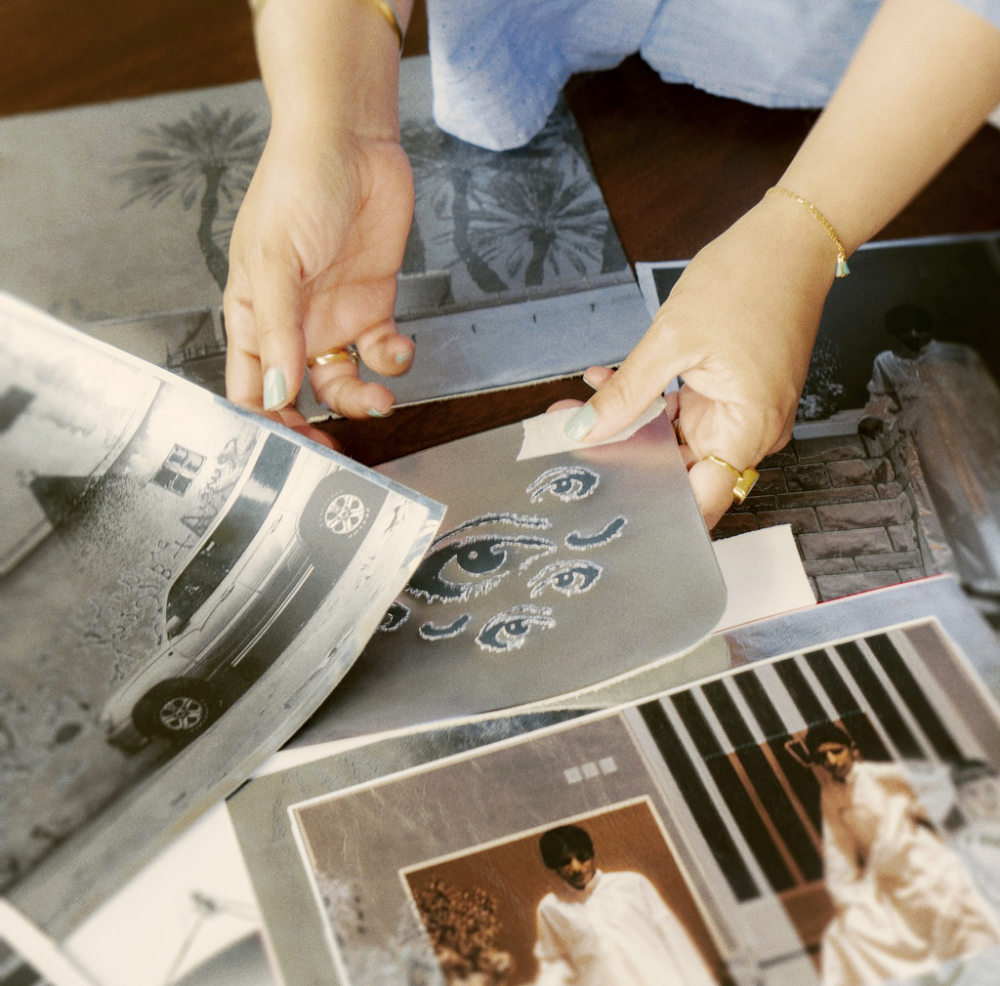
“When I had developed landscapes of the mind, I was looking at the concept of does this landscape belong to me? Or do I belong to it? So, it was really a question of belonging, and whether I was invited to stay on this landscape or, you know, women in public space was my question. So, we have to exist in private spaces. I think, with this bag, I am actually introducing this idea, but in a very different way. I think that the explosion of women in the public space, their open invitation to participate, and building and cooperating alongside their fellow men is a wonderful moment in our history. And I wanted it to be documented in the spec,” she said.
Al-Dowayan expressed hers feelings about when the pandemic was at its peak in 2020. She wrote a statement in Arabic that translates to “I live and die for the moment” and applied it to the bag design. “The idea behind that was really a statement of where we are in our pandemic days in 2020, where we don’t know what will happen tomorrow to our house, to our country, to our planet, and I encourage you to live and die for the moment,” she said.
Commenting on “Desert Rose,” Al-Dowayan said: “It is a form I’ve been exploring throughout my artistic practice in the past four years as a recent addition to my work and I’m very much interested in its ephemeral existence.” The bag represents a crystal-like rose that exists in only a few deserts in the world, including the desert outside of Al-Dowayan mother’s home. It also exists in Qatar and UAE, because Saudi Arabia shares the same desert in the Eastern region.
Al-Dowayan said: “This crystal form does not exist for all eternity because it dissolves at some point, it only has a lifespan of 10 years. And given that, in the past few years, I’ve been very much focusing on the ideas of disability and disappearance, especially in my trampolines that were developed in AlUla.”
Al-Dowayan joined a Lady Dior Art program themed around the sixth edition of the Dior Lady Bag, which was held in Riyadh in 2020 where 12 other international artists participated to represent their art and designs through these bags. The iconic classic medium-size leather bag has been reinvented and reconstructed throughout the years in many different colors, editions and collections. The art program was a cross-cultural collaboration that gave each artist a chance to add their inspiring story to every piece they produce.
In line with this art project, Dior has launched a podcast to go along with the Lady Dior Art bag, so the new round of talented artists share the stories behind the artworks and designs applied to the handbags. The limited edition of the bags with Al-Dowayan art was released at the end of December 2021 when Dior tweeted @Dior: “Recasting its charms in Arabic lettering, Manal Al-Dowayan reinvented the #LadyDior for #DiorLadyArt 6 through references to her Saudi heritage and desert rose crystal inspiration.”
Al-Dowayan talked about how elegant women like to look in the Gulf through their appearance and exotic fashion. “Saudi women and actually women of the Gulf, in general, are some of the most stylish women on the planet. They are people who have supported these global brands by buying from them and wearing them in the most interesting ways. Customizing something that comes from Europe, to look absolutely beautiful in the setting that is our countries,” she said.
Commenting on emerging Saudi talents, Al-Dowayan said: “I’m constantly inspired, it’s very exciting. I enjoy looking at art and I love having interesting conversations with creatives across the country who are expressing themselves in multiple mediums that were very lonely, as when I first started as an artist. It was just me and a handful of other contemporary artists.”
“I’m not talking about modern art, but contemporary art. There are just very few people doing contemporary art and now the scene is full; it’s a great time to be an artist,” she said.
Al-Dowayan said that there was no specific style that she liked to follow in her art, as her work expresses her current life and experiences as a human being and as a woman. “I am an artist that lives in this region but travels the world. So, my art will constantly reflect my personal journey as a human being.”
Dior has now begun a new dialogue with women of the Arab region — simply saying “I see you” she said. “I am not a fashion world girl but I really enjoyed this journey.”
Al-Dowayan will be participating in the “2139 exhibition” in Jeddah that opens on March 3.



